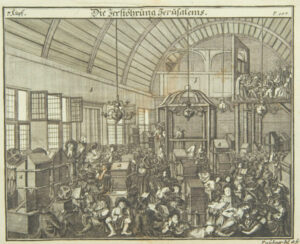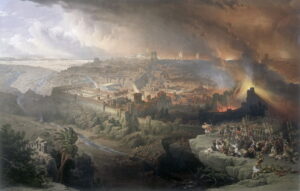Tisha Be’av
Lately it has been asked how we can mourn on Tisha Be’av when Jerusalem has already been rebuilt.
Our Rabbis of Blessed memory have told us that the reason behind the destruction of the temple was factional and individual hatred. Below you will find a story which I translated from the Talmud. (Gitin 45b)
Because of Kamtza and Bar-Kamtza the city of Jerusalem was destroyed.
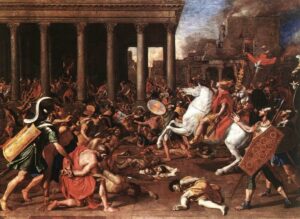
There was a particular man (who we will call host) who was friendly with Kamtza and was sworn enemy with Bar-Kamtza. The host made a feast. He told his servant to bring Kamtza. The servant brought Bar-Kamtza instead.
When the host got one look at his uninvited guest he went over to him and said, “You are my sworn enemy, What [the heck] are you doing here? Get out!!!”
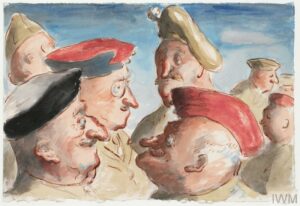
Bar-Kamtza told him that since he is already present he wants to stay and will pay for whatever he eats. The host still insisted that he should leave. Bar-Kamtza offered to pay for half of the feast. (this was a lot of money as hundreds of people were present) The host still insisted that he should leave.
Bar-Kamtza then offered to pay for the entire feast. The host then physically threw him out. (I am sure that the whole room was quiet and that all present knew exactly what was happening. Thousands of people become quiet when there is fight going on)
Bar-Kamtza said to himself, “Since the rabbis were present and they said nothing I see that they agreed. I will go and inform the authorities. He went to Rome to see the Caesar. Bar-Kamtza said to Caesar, “The Jews are rebelling.” Caesar answered back in non believing tone, “Who says?”
Bar-Kamtza told him to send a sacrifice to the temple and see If the Jews would bring it on the temple alter. Caesar sent with Bar-Kamtza a sacrifice, a third born calf (in the talmud a third born calf of a cow is most delicious) On the way to Jerusalem He sliced the calf’s lip, while others say that he scratched its eye ball. This renders a sacrifice unfit for the alter. When the gentiles bring a sacrifice to there pagan gods they would not have considered such a wound unfit for sacrifice.
When he got to the temple some wanted to bring the calf so as not to stir the anger of the Emperor. Rabbi Zechariah Ben Avkulas said that if we bring this sacrifice people will come to believe that it is permissible to sacrifice unfit animals. Those present said to Rabbi Zechariah, “So let’s just kill him.”
Rabbi Zechariah did permit this. He said that murdering the man would mislead people to believe that if a person damages a sacred animal that he should be put to death.”
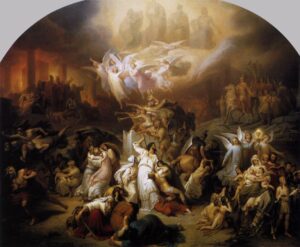
Rabbi Yochanan (who lived hundreds of years after the destruction of Jerusalem) said that the humility of Rabbi Zechariah be Avkulos caused the destruction of our temple, the burning of the Holy of Holy’s and we were exiled from our country [for thousands of years.]
Word of the sacrifice got back to Nero Caesar. In order to see if the gods were with him he threw darts at his map and it landed on Jerusalem. He threw them from the North, South, East, West up and down, each time it landed on Jerusalem.
He then went over to a child and asked to tell him a verse. (this was a method to tell the future) The Child answered “I will lay my vengeance on Edom through the hands of the my nation Israel…” (Ez. 25,14) Nero said to himself, “G-d wants to destroy his people and wants to wipe his hands clean on me.” He went and converted to Judaism and one of his prodigy was Rabbi Meir.
Word then made its way to Aspasyonos Caesar who laid siege on Jerusalem for three years.
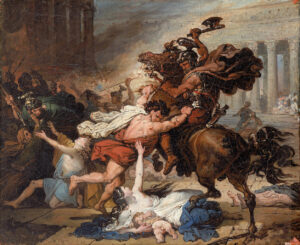
In Jerusalem there were three very wealthy men. They were Ben Nakdimon Ben Gurion, Ben Kalba Sabuah, Ben Tziztzit Hakeset. Nakdimon was called that because the son spotted for him. Kalbah Sabuah was called that because whoever visited him hungry like a dog would leave satisfied. Ben Tzitzit was called that… because he was so powerful that the strings from his Tziztit were over the faces of the important people of Rome.
One of these said that he will donate enough wheat and barley to sustain the city. Another said that he would donate enough wine, salt and oil to support the city. The third said that he would donate enough firewood to cook all the food. The rabbis praised the man who donated the wood.
Rav Chisda said that the one measure of food need 60 of wood to get cooked.
They had enough food to sit through a 21 year siege.
There were ruffian zealots who went to the rabbis and said that they should make peace with the Romans. The rabbis answered that it is not a good idea. The ruffians then asked, “so lets fight!” The rabbis said that they would not win.
They went and burned all of the food. (hoping to rile the people up to fight) This caused starvation….
When we examine the structure of this story we see that all of the Jewish players in the story were very short cited. For a momentary bit of sweet revenge they collectively led to the destruction of Jerusalem.
- The Host just wanted to enjoy his meal. He was sickened by the sight of his sworn enemy whom he hated for no reason.
- Bar-Kamtza was only thinking about sweet revenge against the rabbis who did not protect him from humiliation.
- Rabbi Zechariah Ben Avkulas faked worrying about the “long term” by saying that people will learn the wrong Halacha. His decision led to the termination of sacrifices, so nobody had the opportunity to make such mistakes.
- The only people who had good intentions were the three wealthy people.
- The rabble rousers wanted the Jews to fight instead of sitting comfortably through the siege.
This is the reason why we fast on Tisha Be’av. Those who would celebrate will have opportunity when we cease hating each other. It is said in the books of the Prophets “The …[fast days] will be turned from misery to happiness.
LET’S ALL WORK TOGETHER TO CHANGE THE MISERY OF HATRED WHICH FORCES US TO MOURN OUR OWN DESTRUCTION.
